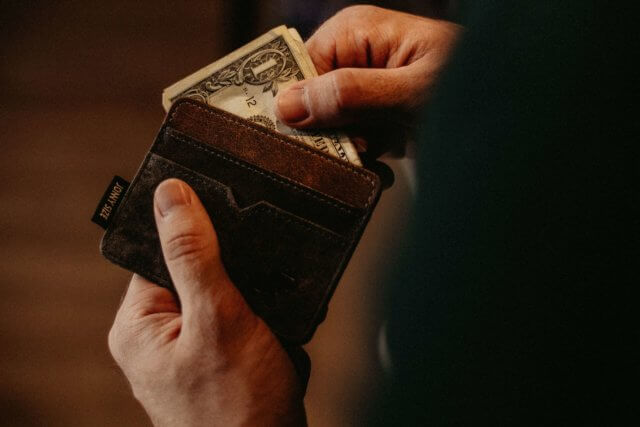Pinball machines.
It’s a long-standing joke in my family that the only thing I ever wanted that my parents never got me was a pinball machine. And I mean, I really wanted one. This wasn’t some flash in the pan idea that kids have where they want something one day and then completely forget about it the next. I would ask year after year (I even still mention it to my wife every now and then!)
Now granted, I grew up in the 90s when there was Sega, PlayStation and Nintendo, so you may be wondering why I wanted a pinball machine. And truthfully, the answer is I really can’t explain why. I just thought it would be really cool to have one.
Warren Buffett had an affinity for pinball machines too when he was growing up.
Yet, each of our interactions with them are very different. Our stories may share the common thread of pinball machines, but they illustrate two very different, but equally important lessons about personal finance.
Buffett’s is a tale of wealth and mine is one of consumerism.
A Business Venture
It’s no secret Warren Buffett focuses on building wealth. He’s been that way since he was young. You can say what you want about his tactics, but he has been very successful.
One of his earliest business ventures dealt with pinball machines. Alice Schroeder describes Buffett’s strategy in her biography on Buffett titled The Snowball.
Essentially, the story goes that 17-year-old Buffett and a friend purchased a used pinball machine, fixed it up and then put it in a barbershop. The machine made so much money that they purchased a second, then a third and so on. Eventually they had machines all over town, all from an initial $25 investment.
Building Wealth
I love this story for how simply it illustrates the power of compounding. Compounding is the principle where the returns you make on your initial investment begin to earn you a return as well.
So, if you have $1,000 in a savings account and earn $10 interest in one year, the next year both original $1,000 and the $10 interest will earn interest. This same principle is why the stock market is such an incredible generator of wealth. Over the past 90 years, the market has averaged a 9.8 percent compound return.
Even at a young age, Buffett realized that in order to build true wealth you needed to be able to amplify the capital you had.
In order to do so, you need to think of your money as an asset. While most kids would have spent that $25 on candy or comic books, Buffett viewed it has a way to earn more money. By using the profits from the first machine to purchase a second, Buffett was able to build a nice business from his initial investment.
Get Rich Slowly
So often people are focused on getting rich quick. Just look at how many results turn up on Google for “get rich quick” (Over 13 million in fact).
Most of these are just scams to take other people’s money, but they illustrate how people are willing to spend any amount to become wealthy. Buffett’s story shows how wrong this approach is.
Instead of using his money or even taking out a loan to buy three or four pinball machines to start, he began with one. Then he made sure that the business model made sense before expanding. Plus, since he waited, he was able to expand without investing any more capital.
Remember building wealth takes time and no matter what the internet says, you aren’t going to become an overnight success.
Learn From My Past Mistakes. Get Your Copy of the 9 Most Common Investing Mistakes.
Get My CopyMy Story
My own story about pinball machines is almost the complete opposite of Buffett’s.
No matter how many times I asked my parents for one, they kept saying no. Eventually I gave up, but looking back on it now, I see the error of my ways.
I was acting on a want and not a need.
I was thinking like a consumer.
Instead of viewing money as an asset like Buffett did, I viewed it as a way to buy stuff I wanted. I mean, of course I did, I was only 10-12. But as an adult I am able to the lesson my parents (even if it was inadvertent – I think they really just didn’t want that pinball machine in our basement) taught me about managing my finances.
The Downside of Desires
Our wants cause problems for our finances.
Think about it. When most people run into financial troubles, is it because they spent too much on their needs? Sure, things like going to college or renting an apartment can be expensive, but it’s more often than not your wants that eat away at your budget. The fancy cars or lavish trips can add unnecessary and sometimes crushing debt.
And for what? Just to have a really great Facebook feed?
Sure, it’s unrealistic to think you’ll only buy things you need, but you have to be careful to keep your spending on material stuff under control.
Looking back on it, that time in my childhood had a major impact on my thinking today. I really think twice before making big purchases. I’ll ask myself if I really need it first. Sometimes I’ll wait a few weeks or months to see if I still think I need it. If I can find that’s it’s something I really do need and I can afford it, then I’ll make the purchase.
I’m starting to think like Buffett and find ways to amplify my wealth and not waste it. And all because of a pinball machine.
When’s a time you bought something you wanted? Did you regret that decision later? Let me know in the comments.







Leave a Reply